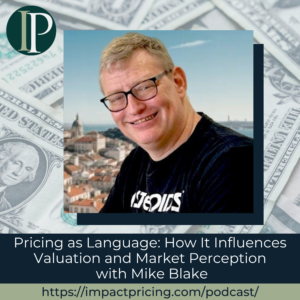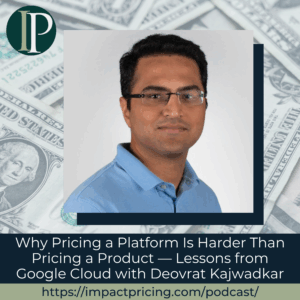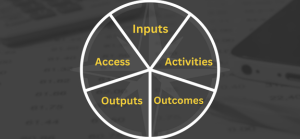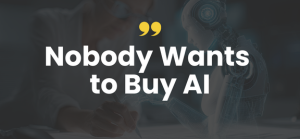Mike Blake is the founder of High Score Strategies, with over 26 years of experience in business valuation and M&A markets. He specializes in advising small to medium-sized businesses (SMBs) on increasing their valuations. Mike is passionate about the relationship between pricing and value, and how effective pricing strategies can significantly impact a company’s worth.
In this episode, Mike shares his insights on how pricing affects valuation, the importance of differentiation in a competitive market, and the shift from growth to profitability in business models. Together, they explore the concept of context-driven pricing, the significance of signaling in pricing strategies, and how companies can leverage their unique data to enhance their market position.
Podcast: Play in new window | Download
Why you have to check out today’s podcast:
- Discover how pricing communicates a company’s brand and market position.
- Explore the relationship between pricing, profitability, and business valuation.
- Learn about the importance of differentiation and how to create a competitive moat.
“Pricing is language. It communicates to the market what kind of brand you are.”
– Mike Blake
Topics Covered:
01:37 – The relationship between pricing and valuation.
02:30 – The importance of pricing in determining profitability and cash flow.
03:39 – Differentiation and competitive moats in pricing strategies.
04:53 – The shift from growth to profitability in business models.
08:36 – Signaling in pricing and its impact on investor perception.
11:17 – How to differentiate in a market dominated by larger players.
13:23 – The relevance of pricing strategies for SMBs, and how service-based companies offer consulting as value-ad.
17:04 – What Mike does.
19:36 – Why businesses that don’t know their business model.
20:53 – Why value-based pricing is excruciatingly difficult.
25:53 – Mike’s advice on pricing and negotiation.
Key Takeaways:
“Pricing is the stem cell for all of that. [Cash flow, revenue, and profitability]” – Mike Blake
“Companies that get pricing right are the most valuable.” – Mike Blake
“If you’re selling 100% of your deals you’re probably not optimizing your revenue because you’re selling too cheaply.” – Mike Blake
“Understanding your unique data can create alternative revenue streams.” – Mike Blake
Connect with Mike Blake:
- LinkedIn: https://www.linkedin.com/in/unblakeable/
- Email: [email protected]
Connect with Mark Stiving:
- LinkedIn: https://www.linkedin.com/in/stiving/
- Email: [email protected]
Full Interview Transcript
(Note: This transcript was created with an AI transcription service. Please forgive any transcription or grammatical errors. We probably sounded better in real life.)
Mike Blake
If nobody’s ever telling you to screw yourself because your prices are crazy, it’s too low. So put yourself in a position where you are going to walk away from deals.
[Intro / Ad]
Mark Stiving
Welcome to Impact Pricing, the podcast where we discuss pricing, value, and the communicated relationship between them.
I’m Mark Stiving, and I run boot camps to help companies get paid more.
Our guest today is Mike Blake. Here are three things you want to know about Mike before we start. He is the founder of High Score Strategies, which is an advisor to SMBs looking to increase their valuations.
We’re going to spend a lot of time talking about that today. He’s been in business valuation and M&A markets for 26 years. He doesn’t look that old, but yes. And he’s currently learning his sixth language. And I can barely speak English.
Welcome, Mike.
Mike Blake
Hi, Mark. Thanks for having me on.
Mark Stiving
Hey, it’s going to be fun. It’s going to be fun. So I normally start with the question, how’d you get into pricing? But with you, I don’t want to ask that.
Here’s what I really want to ask. How does pricing affect valuation? Now, is that not like the biggest softball ever, and that’ll take about an hour just to answer that question?
Mike Blake
Yeah, you know, one to two minute answers, 20 to 25 minute answers, they’re basically the same thing, right?
You know, pricing is, I hate to say it’s everything, that’s too simplistic, but pricing, as I’m fond of saying, pricing is language.
And pricing communicates to the market what kind of brand you are. It communicates your competition level in the marketplace. It communicates your differentiation. It communicates your resilience. It communicates your culture. And all of those things impact the value of a company.
So, you know, how a company prices its products and services tells me a lot about where I think the value is going to be.
Mark Stiving
You know, what’s fascinating about the answer you just gave is you never said profitability or ROI or future stream of profits, where I would have thought that is really what drives valuation.
Mike Blake
Well, the way I look at it, all those are downstream features or products of price, right? You tell me whether or not there’s profitability, positive cashflow, chances are very good, it comes back to price one way or the other. If you’re not priced right, you’re either not selling enough, or if you’re not priced right, you’re selling too much but not making enough for what you sell. Either way is a bad outcome.
The most valuable companies, in my view and in my experience, get pricing right, whatever that means. I imagine we’ll talk about what pricing right means. I don’t mean the game show. But pricing and value are inextricably linked. Cash flow is a result. Revenue is a result. Profitability is a result. Pricing is sort of the stem cell for all of that.
Mark Stiving
I used to say pricing is like a grade, right? So if you’re in a class and a professor gives you a grade for how well you performed, price is kind of like, well, how well did we do building our product? It tells the world, this is what you’re worth.
Mike Blake
It tells the world what you think you’re worth. And then your job then is to get the world to agree with that. Yes. And that’s the tricky part of it because prices is language, but it’s not a monologue, it’s a dialogue.
And, and only when that dialogue, when it turns into a dialogue, does price then create a meaningful economic impact. But if it’s just a monologue, if you’re just out there sort of shouting from the mountaintop that I’m worth a million dollars, I mean, that’s great for your self-esteem, but it’s going to result in a very low-value business because you haven’t actually sold anything at that price point.
Mark Stiving
And so what is it that really matters in the world of pricing? I’m in the middle of developing a new strategy called context-driven pricing, which I define as meaning charge what a customer is willing to pay. And it’s the most profitable pricing strategy you could possibly ever implement.
And there’s many reasons for that. And I was talking to someone the other day and they go, yeah, yeah, yeah, but what about pricing for valuations? Right.
What if I don’t want to maximize profit, but I want to maximize revenue? I want to maximize market share. I want to maximize penetration.
And so now there’s suddenly this different world. How do you think about that?
Mike Blake
So I think about it differently now than I did five years ago, because up until the pandemic, And even into the pandemic, we lived in a world where market share was everything and companies were being priced as a function of their revenue.
And the venture capital investment model is basically a big land grab. Give you a bunch of money so that you can market yourself, advertise yourself, create market share, even make a loss on the service that you’re offering, right? I’m looking at you DoorDash and UberEats and all those guys, right? Economics are completely messed up, all in the name of grabbing market share, because that’s what the market cared about.
And then as the market does every 10 to 12 years or so, it did a very cruel thing. Without warning, and without explanation, it said, you know what? We’re not so much about revenue anymore. We’re now about profitability.
So I think it’s great that you built your company all around generating revenue. You built headcount around that. Not just the number of people you hired, but the nature of the people that you hired, your marketing budgets, your pricing strategy, your positioning. the skill set of the CEO, the culture, all that doesn’t matter anymore. Now we care about profit, figure it out, or you’re out of business in three months.
And so it’s a very different conversation that companies and people like me in the valuation world have had to respond to. You cannot, right now, you cannot sell a growth story, except for artificial intelligence. You can still sort of sell that, But in almost every other industry I can name, you cannot sell a pure growth story. It’s now a profit story.
And it happened in the financial crisis of 2008-2009. It happened in the dot-com bust of 2000. And it turned around and happened right during the pandemic. And the pendulum is still a little bit longer than it normally would be on the profit side, but it’ll eventually switch back to growth because that’s what it always does, but it isn’t there yet.
Mark Stiving
So we tend to swing back and forth between growth and profit. I remember in the late 90s, the concept was always, how many eyeballs are you getting? That’s right. How many eyeballs?
Yes. And so that was, yeah, that was absolutely growth, right? It was, we don’t really care about that. Well, and then Amazon, right? How long did Amazon go without making a profit because they were just trying to grow the company?
Mike Blake
Years.
They were trying to grow the company and also they had a deeper strategy.
Everybody thought they were about selling books and CDs. They really weren’t. They were about staking a claim and they were about collecting data as much as anything else and then using that data to make other things more profitable.
Once they created a dependency in the market to use Amazon as their de facto primary or retail distribution channel of choice, now they’re going to start selling you web services. Now they’re going to start selling you media and AI platforms and video games. online video games. They’re going to compete with Netflix.
So for them, it was always a deeper strategy. And there at a point in time, they had a first mover advantage that allowed them to burn more cash than a lot of their competitors, and they survived and advanced.
Mark Stiving
Yep, exactly, exactly. So we’re going to focus then on pricing for profit for a little while. Talk to me about signaling and how is it that signaling really matters when I’m trying to convince an investor that I’m worth a ton.
What signals are they looking at? How’s this working?
Mike Blake
So I want to make sure we’re talking about the same thing. So when you’re talking about pricing, you’re talking about pricing a company for sale or pricing its securities for sale.
No. So you’re talking about the pricing of its product and services. Okay.
Mark Stiving
Exactly right.
Mike Blake
Okay. That’s why I want to make sure, because I was about to not answer your question. I want to make a great politician.
So I, where pricing enters into the investment discussion is the following. If you’re going to go into any kind of business of significance, you have to answer the question, why is an Alphabet, why isn’t Microsoft, why isn’t Oracle, why isn’t Walmart, why isn’t Apple going to crush you like a grape?
And the answer is differentiation. Where does differentiation show up? And where does a competitive moat show up? It shows up in pricing.
If your business plan is, we’re going to be the low-cost provider, And sorry, that, that is a, that’s a bad business model that basically says, yeah, with my gumption and your millions and millions of dollars, all things are possible.
Except all the established companies out can outspend you $10 to one. You’re just never going to get there.
So, pricing is a, the ability to hold the line on price in the face of brutal Ruthless competition is an indicator that you have a value thesis that the market is accepting.
Mark Stiving
So it’s a fascinating thought. And by the way, I agree with everything you said, but you got me thinking about how am I not going to get crushed by one of the big guys?
And to me, the answer to that is absolutely differentiation, right? There’s no doubt, but it’s also, I have to be going into a market that isn’t so big that they want to go take it from me.
Mike Blake
That’s sort of the weasel and the asteroid kind of discussion where, you know, the asteroid hits, all the dinosaurs die, and then the small mammals kind of survive because they hid underground, and they hit the bugs that the dinosaurs couldn’t survive on, right?
The problem is, if you do that, then you’re limiting yourself on scale.
And no investor, very few external investors want to put money in a venture that says we’re going after a market so small, nobody else cares about it, right?
You’re, you’re basically saying we have a dumpster diving business plan. And, and I don’t know many investors who find that attractive.
Mark Stiving
Okay, so now explain to me how I can differentiate in a meaningful way where, you know, Facebook, Amazon doesn’t say, hey, I want that, I’m just going to innovate and take that away.
Mike Blake
Yeah. So now I’m putting on my very, very amateur marketing and positioning hat.
Boy, is this dangerous. I may just sort of create awkward silence until you start talking, but, but the obvious way that one tries to do it is with intellectual property.
You try to patent, you try to create patents that prevent competition. You try to create. copyrighted material, trademark, software code, and all of those things, by the way, are profoundly flawed.
More likely, the things that are going to be more effective as an intellectual property moat are going to be proprietary data sets, because those are going to be very hard to replicate.
And they’re going to be some form of trade secret, whether that’s customer information, whether that’s processes that can’t be invented around. The problem with patents is that you publish it and then And then if Alphabet decides they just want to invent around it, they’ll throw enough money out until they invent around it. Or they’ll just replicate it and dare you to sue them.
Mark Stiving
And odds are good you violated a dozen of their patents anyway.
Mike Blake
Well, it could be. Or they’re going to violate your patent and dare you to sue them.
You know, it’s like, you can go ahead and hire your team of attorneys at $2,000 an hour for a three year trial before appeals.
Meanwhile, Google has billions of dollars of shareholder money to play with. They have 30 in-house counsel and they have two or three, you know, top flight law firms as well.
You know, you’re just not going to win that battle, right? So you’ve got to do something that, that, that hides you in effect. from Google, you got to be in stealth mode until you become too difficult to displace.
And then they decide, you know, it’s easier and faster for us just to buy you.
Mark Stiving
So Mike, this is a really fun conversation and interesting, but let me ask, is this relevant to the two to $50 million sized companies which you tend to work with, and I work with them a lot too, or are we talking about the guys that are 100 million and shooting for a billion?
So is this a really relevant conversation for them?
Mike Blake
It is, in fact. I have come to hold the belief for the last five or six years or so that many sub-hundred million dollar companies are sitting on gold mines of data that they don’t even realize is there. They don’t know how to monetize it. They don’t even know how to get their heads around it, their arms around it.
And artificial intelligence can become that great equalizer. What do I mean by that?
Take an accounting firm. that’s got $50 million of revenue. If they have that much revenue, chances are they’ve been in business for a half a century, which means they have done the tax returns and books and financial statement audits for thousands of clients over the years, which means they have a wealth of operational data, financial data, tax optimization data, market and economic data that they can mine, industry data. that they could use then to develop alternative revenue streams that are going to be database consulting.
And almost any accounting firm of size will tell you where we want to go as the consulting because tax returns are a commodity and audited financial statements are a commodity. We want to be consultants, right?
That’s why the big four are heavily into consulting as are the sort of second tier of national accounting firms. The problem is that most people who practice accounting are not qualified to become strategic consultants. Not that they’re dumb, it’s just they’re different training sets. I’m not qualified to be an accountant. I’d be a danger to myself and others if I tried to practice the world of accountancy, so I don’t do it.
The entry point though, the moat, the differentiator for that accounting firm that even Ernst & Young can’t necessarily match is they have their own proprietary data set accumulated over 50 accumulated over 50 years that reflects the combined experience, not just individuals, but the firm itself that can be used to market, to inform, and ultimately to serve their clients to help them make better fact-based decisions.
Mark Stiving
So give us a for instance in that world.
Mike Blake
A for instance would be, let’s say I’m in the construction business.
And what if what if in addition to the accounting firm saying, okay, it’s April 15th, your tax return’s done, pay us now. What if that accounting firm had some sort of artificial intelligence platform that said, you know, this construction company relative to other construction companies that are our clients has below average profitability. or below average liquidity, or they’ve got more cash tied up in working capital than their peers.
Those are consulting opportunities that are screaming. to be addressed, that the accounting firm would be the first one in and say, hey, we’ve noticed, by the way, that compared to our peers, you’re not as profitable as most of our other clients in your space are. Is that of concern to you? Most business owners would say yes.
They said, would it be interesting to you if we could apply the lessons that we’re already learning from our other clients in the space and help you achieve their profitability? their level of profitability? Well, yes, I would. I cannot think of any consulting that would be easier to sell than that. You’re already in the door, you’ve got the trusted relationship, and you have the knowledge base that shows, that makes you credible to provide that advice in the first place.
Mark Stiving
Yep, yep. Okay, Mike, can you do me a favor? Tell me what you do.
Mike Blake
I am in the business of appraising, uh, closely held businesses, derivatives and intellectual property assets.
So that usually occurs in the context of a transaction.
A company would like to be sold and they hire me because they’d like to know what a market price ought to be or I have many clients that buy businesses. They hire me to help them determine an appropriate price for the business that they’d like to acquire. I’m often brought in to help with exiting a shareholder.
A shareholder is retiring, they’re quitting, whatever the reason is, and they need someone to help them figure out what is the buyout price going to be. I’m also doing, as I mentioned, a lot of work in the intellectual property space. So one thing I do a lot of is valuation of software code. A company says, we’d just like to buy the software code from this other company. What should we pay for that?
Or we’re going to move this software code from one company to a related company. What is a fair price to make sure that the shareholders of company A are made whole?
Something I’ve started doing recently is NCAA name, image, and likeness valuations.
So when a quarterback enters the transfer portal, And they’re going to sign an NIL deal with somebody in the big 10 conference. What is the market value of that NIL deal? How do you know if you’re overpaying and underpaying? And if you overpay, does that mean that you’re going to be, you’re going to be automatically triggered into a revenue sharing agreement with the NCAA?
So, that’s a sort of a new niche that I’m starting to get into.
Mark Stiving
Yeah.
And so when I think about pricing, I think about pricing products, pricing items and the business piece. And typically when you think about pricing, you’re thinking about pricing a business or a business model.
Is that a true statement or not?
Mike Blake
Oh, yeah, for sure.
Mark Stiving
Okay, but you also go down to thinking about pricing of the individual products. How is this company doing their pricing? Because that influences the pricing of the valuation.
Mike Blake
Yeah, I cannot possibly say something intelligent about the value of a business if I don’t understand their business model.
And there’s no such thing as a complete business model without a pricing discussion.
Mark Stiving
Nice. And so I’m going to say something really stupid. I run into businesses all the time that don’t seem to understand their own business model.
Mike Blake
Yeah, I do too, which creates consulting opportunities, right?
They really don’t because a lot of businesses get started by accident. You know, somebody gets laid off or they have a life transition, but they discover that they have clients that want to hire them and they’re sort of surprised by that and say, okay, I’ll let you pay me.
And they just keep doing it because they keep growing it. They’ve probably left millions of dollars of money on the table over the years, but they don’t realize it. They don’t, or they mistake lack of profitability for quote unquote reinvesting profits when in fact it really just means they haven’t priced their products well enough. or they’ve made a lot of bad decisions that haven’t panned out, but they rationalize that away as reinvesting in the business as opposed to confronting the fact that their business really isn’t very financially successful.
Mark Stiving
Yes. So the way I think about pricing of products, it’s always how does a customer value what you do? Right.
And so I just, I wanted to toss that out because I want to hear you say, or you talk about, how do you think about value and how customers value what it is we do?
Does that, is that part of your world or are you, do you stop at what price are you able to get away with?
Mike Blake
No, it’s very, very much part of my world because I have to price my services too. And I read a lot about a concept with which I’m sure you’re familiar called value-based pricing, which is decoupling your price from effort and rather framing a price in terms of the value created.
And it sounds very easy. It is, in my opinion, excruciatingly difficult to do in practice. because it requires you to expand your sales cycle to make sure that you understand exactly what the value is to a particular buyer.
And that’s hard to do. And in many cases, a buyer’s not going to give you the time. to explore that relationship enough so you can discover that true value, that clearing level of value price. At some point, they’re going to say, look, do you want to do the valuation or not? I want to have a fifth conversation to see what the value is. Do you want the engagement or not? Because if you don’t, I got four other firms here that would very much like to do it.
And so, that may not necessarily be feasible. The other facet of value-based pricing that is not, I think, is not talked about enough, frankly, to the point of being disingenuous, is differentiation and the availability of substitutes. If there are readily available substitutes, perceived or otherwise, to what you do, value-based pricing is at best a pipe dream, and at worst is needlessly costing you business.
If you don’t have such a compelling value proposition that the customers, at a point where they’re sort of thrusting a hundred dollar bills at you and saying, shut up and take my money because I have FOMO that you’re going to work with somebody else. Value-based pricing is simply not realistic.
And there are too many coaches. In fact, some that I respect quite a bit, I just disagree with them. They try to make people feel badly that they’re not doing value-based pricing. It’s not that easy, man. It takes years of building brand awareness. It takes years of building collateral material and making yourself famous and probably thousands of dollars of investment in public relations and God knows what else.
You don’t just walk onto the street and say, I’m going to value price, that’s crazy.
Mark Stiving
Okay, so I’m going to push back a little bit, or maybe I’ll try to educate you and see if this lies or not. Push away.
But by the way, what you said was spot on in a lot of ways.
And I think of, there’s two really very different types of value. There’s a value I’ll call inherent value, which is what’s the value of solving the problem?
And so if I were in your business, I would say, what’s the value of selling my company, right? I’m trying to sell my company. What’s the value of selling my company?
But then there’s also relative value.
Relative value is what’s the value of hiring Mike to sell my company versus hiring Mark to sell my company, right?
So Mike is going to be able to get me an extra million dollars, so therefore I get an extra million dollars of value. And so that still could be value priced, but you still have to look and say, well, Mark, you know, Mike wants to charge me a million dollars. Mark’s only going to charge me 10,000. Guess what? I’m going with Mark, right? Even though Mike’s better, I’m going with Mark.
And so there’s two different types of value we think about when we think about value-based pricing.
One is what’s the value of solving the problem. One is what’s the value of this relative to the alternatives.
Mike Blake
And I don’t think we’re in terribly violent disagreement there because in that second case, I’ve still got to convince somebody that the value I bring is actually a million dollars.
And how do I do that, right?
I’ve got to do that. Yeah, I’ve got to do that by being some cocktail of being an outstanding salesperson, not a good salesperson, like in the top 5% of salespeople.
I mean, to think you can achieve value pricing without being a good salesman, again, in my view, in my arrogant opinion, it’s a pipe dream. And then there’s got to be that, you know, what’s the credibility, what’s the credibility that I can actually deliver it.
I can deliver that million dollars of value. It’s one thing to say there’s a million dollars of value out there, but then.
But then how does somebody reach the conclusion that I’m the million dollars?
And by the way, if it’s a million dollars of value, I probably can only charge a hundred thousand. They’re going to want a 1 X ROI. Right. But even a hundred thousand dollars, that’s a big engagement for most people, including myself.
So how do I get somebody to write that check?
And I guess my point is, it’s not as easy as saying, I want value pricing. You got to fight for it.
Mark Stiving
I’m totally with you. So there’s value-based pricing, there’s value selling. So we absolutely have to understand value.
Mike, loving the conversation. We’re running out of time. So I’m going to ask you the final question. What is one piece of pricing advice you would give our listeners that you think could have a big impact on their business?
Mike Blake
A piece of pricing advice. Yeah, here it is.
As I said, pricing is a language. Negotiation is a kind of conversation. Negotiation boils down to two things.
It boils down to who has superior knowledge of the marketplace and who knows where their walkaway point is.
You cannot hold the line on price if you’re not willing to walk away. If you’re selling 100% of your deals, you’re selling 70% of your deals, you’re probably not optimizing your revenue because you’re selling too cheaply.
Not enough people are telling you to go screw yourself because your prices are crazy.
If nobody’s ever telling you to screw yourself because your prices are crazy, it’s too low.
So put yourself in a position where you are going to walk away from deals. And if you’re not ready to walk away yet, you don’t have the pricing leverage.
So make your objective, put yourself in a position to be able to walk away.
Mark Stiving
Yeah, I actually love that advice. Because if we’re winning every deal, we’re definitely priced too low.
Mike Blake
Yeah, yeah. I mean, even random chance, bad luck is going to cost you some deals. If you’re really batting a thousand, Yeah, it doesn’t make any sense.
Mark Stiving
Keep driving it up. Excellent, excellent. Mike, this has truly been fascinating. I’ve loved it. If anybody wants to contact you, how can they do that?
Mike Blake
I’m not hard to find. Do a search for @Blakeable on almost every social media you can think of.
Your Business Value is my YouTube channel and [email protected] is my email address.
Mark Stiving
Excellent. Thank you. And to our listeners, thank you for your time. If you enjoyed this, would you please leave us a rating and a review?
And if you have any questions or comments about the podcast, or if you want to get paid more for the value you deliver, email me, [email protected].
Now go make an impact.
[Ad / Outro]

















